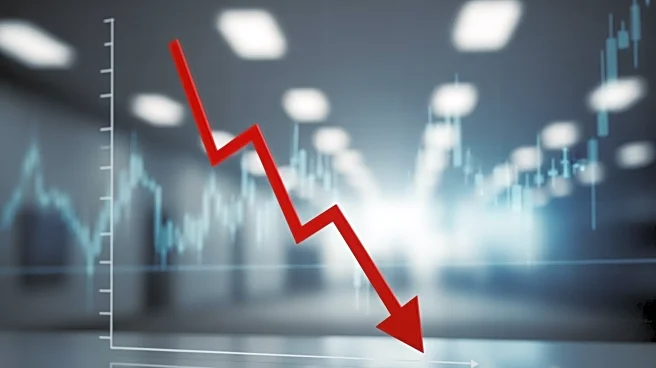What is the story about?
What's Happening?
Farmers and livestock breeders from Larissa, Greece, met with the Ministry of Rural Development to address the smallpox outbreak affecting sheep and goats. Despite the meeting, farmers expressed disappointment over the lack of a clear payment schedule and additional support measures. The outbreak has led to the culling of over 35,000 animals since August. The government has implemented strict measures to prevent a lockdown, focusing on intensified controls and penalties for illegal activities related to animal management.
Why It's Important?
The smallpox outbreak poses significant challenges to the agricultural sector, impacting farmers' livelihoods and the local economy. The government's response, including subsidies and compensation, is crucial for mitigating the outbreak's effects and ensuring the sustainability of livestock farming. The situation highlights the importance of effective disease management and government support in maintaining agricultural productivity and food security.
What's Next?
Farmers plan to organize mobilizations and further discussions to advocate for more substantial government support. The ongoing outbreak requires continued monitoring and enforcement of health measures to prevent further spread. The government's handling of the situation will be closely watched, potentially influencing future agricultural policies and crisis management strategies.
Beyond the Headlines
The outbreak raises broader concerns about animal health and disease prevention in agriculture. It underscores the need for robust veterinary services and regulatory frameworks to address emerging health threats. The situation also reflects the interconnectedness of public health and agricultural practices, emphasizing the role of government in safeguarding both sectors.















